ANDRÁS EDIT

Edit András, PhD, art historian, art critic is a senior researcher at the Institute of Art History, Centre for the Humanities of the Hungarian Academy of Sciences, Budapest (currently Eötvös Loránd Research Network); visiting professor of the Central European University, History Department.Her main field of research is: Eastern and Central European modern and contemporary art, art theory, art historiography, critical theories, nationalism and populism, gender studies. She is also an advisor in local and regional art and research projects and also curator of large scale socially engaged, critical exhibitions. She is a regular contributing critic in Hungarian and international art magazines (Artmargins, e-flux, IDEA. Arts+Society, Third text, Springerin), and was a long-year New York correspondent in various magazines. She is author of theoretical studies published in international catalogues and volumes. She is editor of numerous catalogues and books. She published two books with the selection of her own theoretical writings and essays in Hungarian (a third is forthcoming). She is a participant of numerous international conferences and workshops as invited lecturer and keynote speaker. She had courses and lectures all around the region (Iasi, Tallinn, Poznan, Bratislava, Vienna etc.) She is member of the advisory boards of the Piotr Piotrowski Research Center (Poznan) and the magazines Ars Hungarica, Artmargins, ART East/Central online Journal and The journal Kunstiteaduslikke uurimusi / Studies on Art and Architecture, Tallinn.For her further activities, projects and publications visit her website: http://editandras.arthistorian.hu (Guest Speaker)
BONIZZI VALENTINA

Valentina Bonizzi Based in Tirana, Albania, Valentina is an artist, and the co-founder and program curator at Bulevard Art and Media Institute. Her home studio is the Academy of Others. Her work takes visual forms as well as writing, all urgently engaged with issues of education and research. Valentina has worked and lived in Scotland, the Italian region of Molise, Palestine, and most recently Albania. In Tirana, with Bulevard, she is working in collaboration with a team of curators, artists, and researchers to establish gathering spaces that center education, social justice, and intergenerational feminist and queer practices. Part of that work is developing the archive of Linda, the first association of women artists in Albania. She is the series editor of the Albanian Handbook for Art and Education, and she has published with the journal Art Studies published by the Centre for the Study of Art in Tirana. Among others, she has also published with Journal for Flusser Studies (What legitimates photography?); the Mauritius Catalogue of the Venice Biennale (When you realised you were a: White. European. Male.); and Tirana Art Lab (How to Stage a Masterpiece). Bonizzi holds a Master of Research in Visual Practices from Glasgow School of Art, and a PhD (AHRC funded) from the University of Dundee (Visual Research Centre). (Getty Seminar Participant)
BOTEA BUCAN IRINA
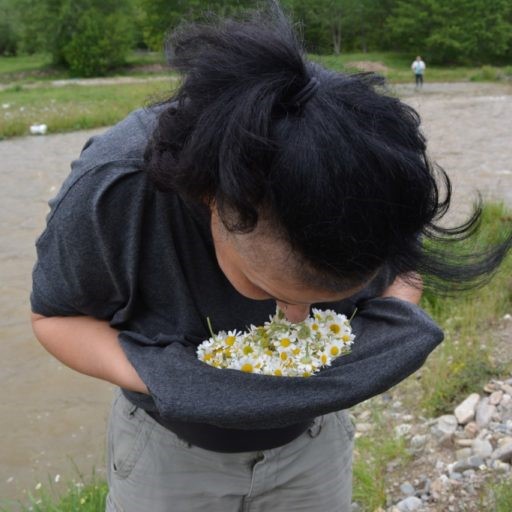
Irina Botea Bucan (b. Ploiesti, Romania) has developed a symbiotic artist-educator-researcher methodological framework that consistently questions dominant socio-political ideas and centralizes human and non-human agency as a vehicle for meaning. Choosing to act in diverse contexts, such as: academic institutions, alternative galleries, museums, art biennials, film festivals and generic community centers; she is currently focusing on the de-centralization of cultural discourses and the possibility of sustaining creative differentiation that arguably exists outside of a dominant hegemonic system of values and critique. Performance, reenactment, simulated auditions, elements of direct cinema and cinéma vérité are combined in her artistic approach. The works are developed through a process of collaboration in which the performers are participants in the process, while her filmmaker role is shifting from an observational to a reflective, participatory and performative mode. Currently she is faculty at The School of the Art Institute of Chicago(since 2006) and pursuing a PhD at Goldsmiths University in London. Solo and group shows include: 55th Venice Biennale, International Film Festival Rotterdam, New Museum, New York, MUSAC (Museum of Contemporary Art of Castilia and Leon), Pompidou Centre, Paris, National Gallery Jeu de Paume, Paris; Kunsthalle Winterthur, Reina Sofia National Museum, Madrid; MUSAC-Museo de Arte Contemporáneo de Castilla y León, Spain, Gwangju Biennale 2010, U -Turn Quadriennial, Copenhagen; 51st Venice Biennale; Prague Bienale; Kunstforum, Vienna; Foksal Gallery, Warsaw, Argos Center for Art and Media, Brussels; MNAC (National Museum of Contemporary Art), Bucharest; Museum of Contemporary Art, Szczecin, Poland, Center for Contemporary Art Ujazdowki Castle, Warsaw. Festivals: Artefact Festival, Leuven, Rotterdam Film Festival, Impakt Panorama, Utrecht; Polis Adriatic Europe Festival; Awards: 3Arts Visual Artis Award, Impakt Film Festival Silver Award, International Residence at Recollets, Cite des Arts, Paris, Constantin Brancusi, etc. (Getty Seminar Participant)
BUDEN BORIS

Boris Buden is a writer and cultural critic based in Berlin. He studied philosophy in Zagreb and received his PhD in cultural theory from Humboldt University in Berlin. In the 1990s he was editor in the magazine Arkzin in Zagreb. Among his translations are some of the most important works of Sigmund Freud. His essays and books in BCMS, German and English cover the topics of philosophy, politics, cultural and art criticism. He has participated in various conferences and art projects in Western and Eastern Europe, Asia and USA, including Documenta XI. Buden is permanent fellow at The European Institute for Progressive Cultural Policies in Vienna, and teaches at various universities in Europe. His most recent book is Transition to Nowhere: Art in History After 1989, Berlin 2020. (Guest Speaker)
CSANDA MÁTÉ
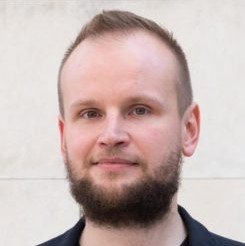
Máté Csanda – Born in Czechoslovakia, grew up in Slovakia (Bratislava) in a Hungarian-speaking family. After studying painting and graphics in Düsseldorf and Kassel, second degree (MA) in art history at the University of Vienna. Since 2020 research assistant at the Institute for Art History at the University of Vienna. As a PraeDoc assistant, I am currently working on my dissertation. On the one hand, I am concerned with the Hungarian memory dispositive – discourses on memory and identity politics of the interwar period, especially of the political right and their renaissances after 1989. On the other hand, I am dealing with the formal and narrative logic of contemporary artworks, their subversive, myth- and ideology-critical potential. My thematic material is therefore the construction logic of Hungarian ethnonationalist identity narratives (with a focus on the conjuncture of these patterns after 1989). Furthermore, my interest lies in the heuristic, epistemological, performative dimension of contemporary art projects in the medium of the docufictional and/or in the paradigm of artistic research. My focus is – in the form of close readings – on three art projects (videos and installations) from the recent past. These consist largely of found footage / „archive material“. Practices such as montage, compilation and reenactment are strategically integrated in their work logic – while in terms of genre they are committed to the essay form, speculative fiction or approaches of critical fabulation. I regard the works as theoretical objects or prisms that, through forms of aesthetic thinking, provide us with a specific insight into the complexity of the Hungarian memory archive – which has been appropriated by right-wing national discourses or figures of competitive victimhood. (Getty Seminar Participant)
FINKELSTEIN EMILY

Dr. Emily Finkelstein is an art historian and curator. She is currently a curatorial research assistant at Hamburger Bahnhof: Nationalgalerie der Gegenwart/National Gallery of Contemporary Art in Berlin. Emily completed her PhD entitled ‘Beyond the Wall: Post-Socialist Museums in the Former German Democratic Republic’ at the University of Pittsburgh in 2023, with extended research appointments at the Freie Universität Berlin and the University of Leipzig. Her work is invested in the construction of multidirectional horizontal narratives, the development and subversion of memory cultures, and the politics of new public spaces in East Central Europe after 1989. Finkelstein completed her MLitt at the University of Glasgow in 2016 and her BA in Art History and German at Bryn Mawr College in 2014; both her undergraduate and master theses examined East German art and architecture in the frame of their reception after 1989. (Getty Seminar Participant)
GROYS BORIS
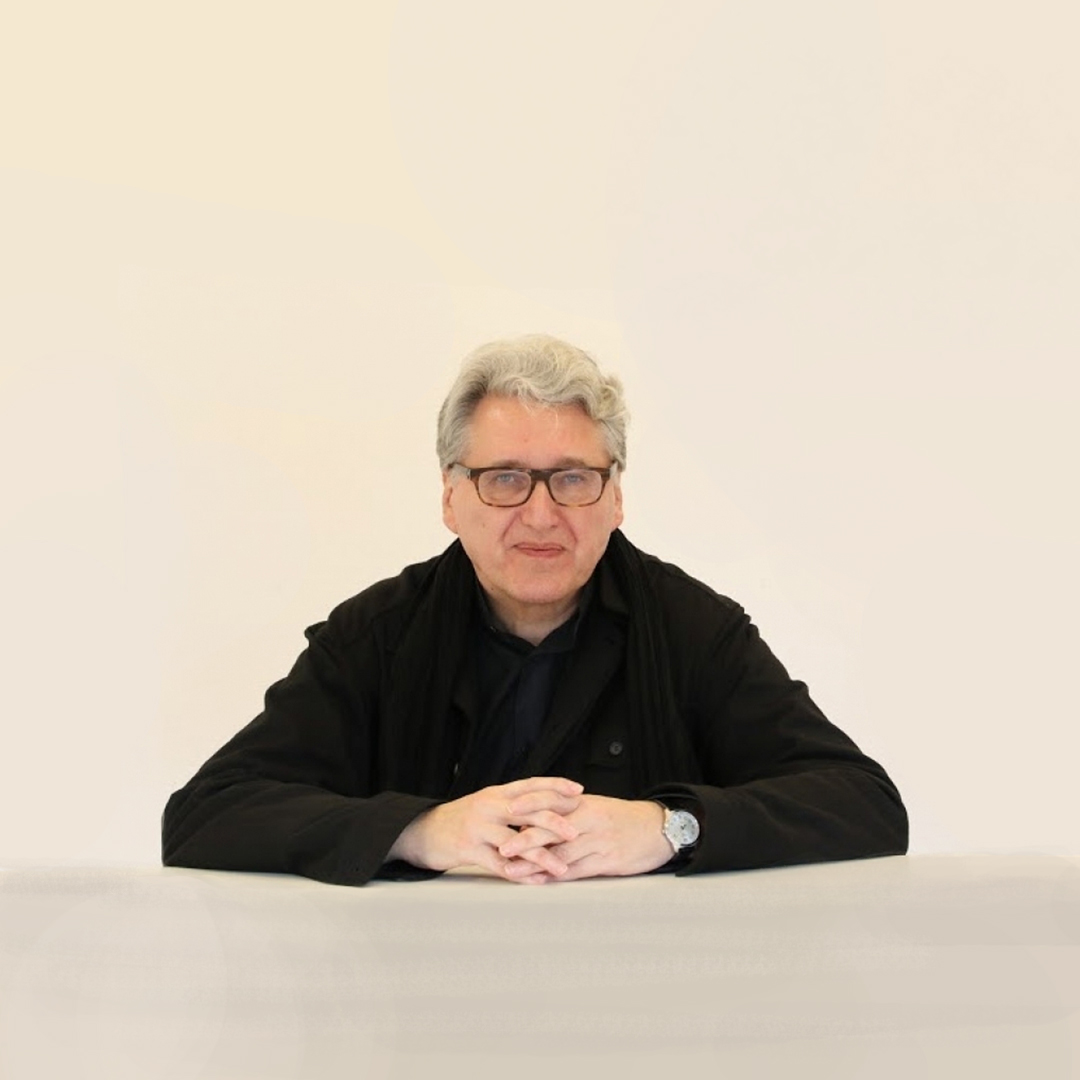
Boris Groys is a philosopher, essayist, art critic, media theorist, and an internationally acclaimed expert on late-Soviet postmodern art and literature, as well as on the Russian avant-garde. Dr. Groys’s writing engages the wildly disparate traditions of French poststructuralism and modern Russian philosophy. In the 1970s, Dr. Groys, who had studied philosophy and mathematics at Leningrad State University, immersed himself in the unofficial cultural scene in Russia’s capitals, coining the term “Moscow conceptualism.” From 1976-1981, he held a position as a Research Fellow in the Department of Structural and Applied Linguistics at Moscow State University, and in 1981, Dr. Groys emigrated to West Germany, where he earned his Ph.D. in Philosophy at the University of Müenster. In the United States, he is best known as the author of The Total Art of Stalin. This work is credited for introducing Western readers to Russian postmodernist writers. His philosophical writing includes A Philosopher’s Diary, On the New: A Study of Cultural Economics, and The Invention of Russia, while his contributions to art theory and criticism can be found in Vanishing Point Moscow and The Art of Installation. His most recent books are Under Suspicion: A Phenomenology of the Media and Ilya Kabakov. The Man Who Flew into Space from his Apartment (Afterall/MIT Press, 2006). Dr. Groys has also edited collections of articles in Russian and German and has written more than a hundred articles. Since 1994, in addition to serving as the curator and organizer of numerous international art exhibitions and conferences, Dr. Groys has been a Professor of Aesthetics, Art History, and Media Theory at the Center for Art and Media Technology in Karlsruhe. (Guest Speaker)
HUTH JÚLIUSZ

Júliusz Huth (b. 1982 in Arad, Romania) is an art historian and art critic based in Budapest. He is currently a PhD candidate at Eötvös Lóránd University and a researcher at the Central European Research Institute – Museum of Fine Arts, Budapest (KEMKI).
As a researcher of the KEMKI his research mainly engages with the history of art criticism and of the art institutions of the 1980s in Hungary. His PhD research deals with the political and economic changes around 1989 and their effects on the field of visual or exhibited art, and especially with the post-1989 history of the main art organizations of real socialism. The research focuses on the conflicts between the Budapest Kunsthalle, which became the main exhibition space for contemporary art, and of the Association of Hungarian Fine and Applied Artists, which represented the artists who had lost positions in the new system. Besides his academic activity Júliusz is also active as an art critic and is a member of the Hungarian Section of AICA. In the recent years he was writing provocative critiques and analyses about contemporary art and contemporary art’s possibilities in Hungary linked together with the actual cultural political context in Hungary and the global late-capitalist conditions. (Getty Seminar Participant)
KULCHYNSKA LESIA
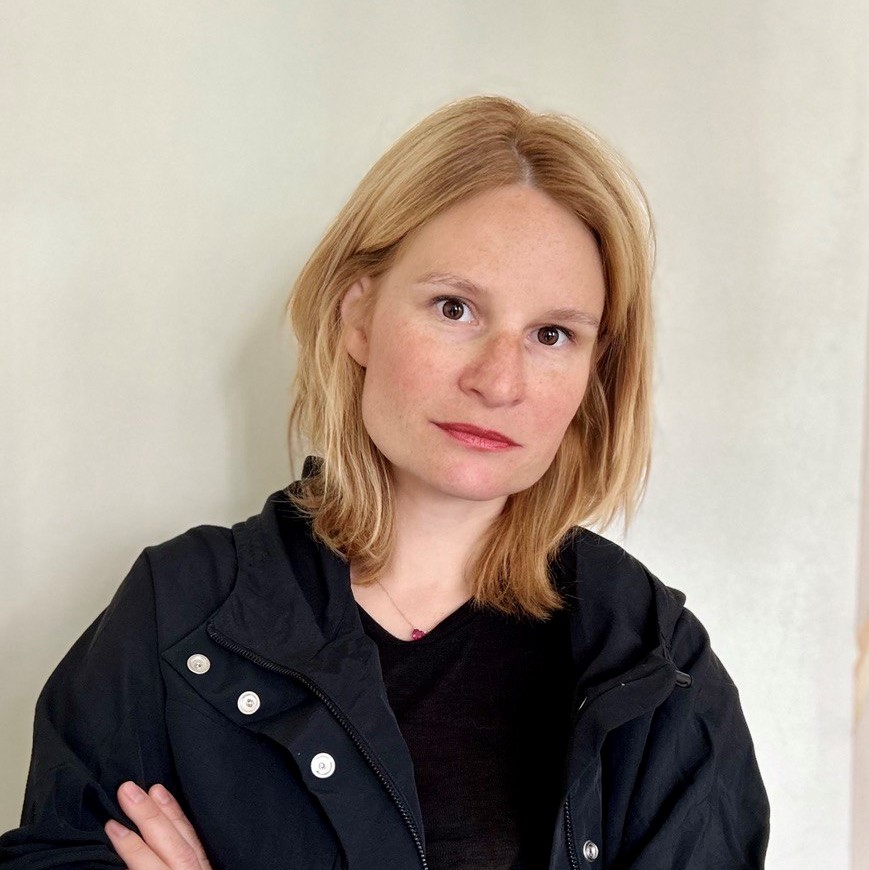
Lesia Kulchynska is a curator and visual studies researcher currently based in Rome. She is an adjunct professor at the Department of Communication and Media Studies at John Cabot University (Rome) and is affiliated with Bibliotheca Hertziana – Max Planck Institute of Art History as a postdoctoral fellow. She holds her PhD in Film Studies. She taught “Theory of Communication” at the National University of Kyiv-Mohyla Academy, “Cultural Studies,” “Media Studies”, as well as her author’s course “Violence of the Image” at the Kyiv Academy of Media Arts. She also worked as a researcher at the Pinchuk Art Center and curator at the Visual Culture Research Center. She curated The School of the Lonesome – at The Kyiv Biennial 2015 “The School of Kyiv”, besides multiple other artistic projects. In 2018-19 she was a Fulbright Scholar residing at New York University, where she worked on her research of the violent responses to art, studying the cases of banned and attacked exhibitions in Ukraine. Lesia Kulchynska is a founder of the “Nomadic School of Visual Education” and of the web project Service Website. Lesia Kulchynska is the author of Meaning Production in Cinema: Genre Mechanisms (Kyiv 2017), editor of The Right to the Truth: Conversations on Art and Feminism (Kyiv 2019) and Joseph Beuys. Everyone is an artist (Kyiv 2020). Her research interests are the theory of the image and the visuality of violence.(Guest Speaker)
LEKOVIĆ IVA

Iva Leković graduated from the Department of Art History at the Faculty of Philosophy, University of Belgrade. She completed her master’s studies at the interdisciplinary program of the UNESCO Department for Cultural Policy and Management at the University of Arts in Belgrade. Currently, she is a PhD candidate at the department for Theories of Drama Arts, Media and Culture at Faculty of Drama Arts in Belgrade, where she holds a position of junior researcher. As a curator, she led several exhibition projects. She is the author of a few exhibition set ups and catalogues editions, as well as of numerous essays that deal with visual arts and film. So far she collaborated with diverse cultural institutions and film festivals (BELDOCS, AFF etc.) and she attended various summer school programs and seminars (ICOM Serbia – Ecomuseums and Community Museums; Jean Monnet Module Music Identities and European Perspective – an Interdisciplinary Approach; Kooperativa: Regional Platform for Culture – Liquid Frameworks Solid Institutions). She is a member of the portal Filmoskopija and a member of associations ULUPUDS and AICA. (Getty Seminar Participant)
LENDECZKI KINGA

Kinga Lendeczki is an aesthetician and cultural worker based in Budapest. She is currently enrolled in the Aesthetics Doctoral Programme of Eötvös Loránd University. In her doctoral research, she examines the local characteristics of socially engaged art projects in Ukraine in the context of geopolitical, social and cultural changes, focusing on the impact of revolutionary events on the artistic and cultural field. She is a junior researcher at the Research Centre for Aesthetics, Nature and Environment (RCANE) research group, where her research mainly engages with the representation of the ecological crisis in contemporary art. She holds an MA in Communication and Media Studies and another in Aesthetics (2015) from Eötvös Loránd University. She was the project manager of several cultural organizations and international cultural projects, such as the RomArchive Film Section and the Studio of Young Artists’ Association. (Getty Seminar Participant)
MARKOWSKA ANNA

Dr. Anna Markowska (a full professor and doctoral supervisor), is an art historian, curator, and critic. She currently serves as the Head of the Department of Modern and Contemporary Art at the Institute of Art History, University of Wrocław. She has lectured at numerous institutions, including the Hebrew University in Jerusalem, the Universities of Copenhagen, Leon, Madrid, Porto, Pisa, Tomsk, and St. Petersburg. Her recent publications cover a diverse range of topics, including the legacy of modernity, social exclusions, unlearning, feminism, spirituality and women’s oral counter-histories. Notable recent works are Why Duchamp Didn’t Part His Hair? (Kraków: Universitas, 2019), Natalia LL (Wrocław: Akademia Sztuk Pięknych, 2022), and Sztuka i rewolucja. Wieloperspektywiczne ujęcie sztuki polskiej zaraz po wojnie (Art and Revolution: A Multi-Perspective Overview of Polish Art After World War II, Kraków: Universitas, 2023). (Guest Speaker)
NAGY KRISTÓF
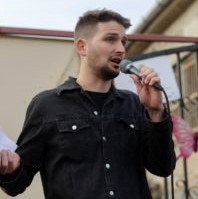
Kristóf Nagy is an art historian and sociologist at the Central European Research Institute for Art History (KEMKI), working on a research project on the Art of Hungary and Eastern Europe in the 1980s. He is currently finishing his PhD at the Department of Sociology and Social Anthropology of the CEU. In 2019 he curated the exhibition Left Turn, Right Turn – Artistic and Political Radicalism under Late Socialism at the Blinken OSA Archives with Márton Szarvas.
His research has been published extensively in international journals and edited volumes. He is a member of the Helyzet Working Group for Public Sociology and serves as an editor of the journal of social theory Fordulat. In 2022 he edited its Culture & Capitalism special issue. Since this year, he has been an assistant lecturer at the Eötvös Loránd University, teaching courses on the intersections of culture and society. His research proposed in the framework of the Understanding 1989 in East-Central European Art seminars origins from the PhD Thesis he is currently. The dissertation project examines the cultural politics of the Orbán-regime through the ethnography of the Hungarian Academy of Arts by approaching it from the critical political economy of the socialist and post-socialist periods. In the framework of this seminar series, he will map the late-socialist origins of this ethnonationalist Academy. In this project, he will approach the Academy’s roots from the years of the transition as a case to map how nation and nationalism blossomed in the art scenes of the post-socialist transition. (Getty Seminar Participant)
PAN YUNJING

Originally from China, Tobey Yunjing Pan holds a BA in English Linguistics (Guangdong University of Foreign Studies) and an MSc in Modern and Contemporary Art: History, Curating and Criticism (The University of Edinburgh). She is currently a PhD candidate in History of Art at the University of Edinburgh under the supervision of Dr Angela Dimitrakaki (Principal Supervisor) and Dr Lucy Weir (Second Supervisor). Her PhD project, which she commenced in 2022, focuses on artistic methodologies in East-Central Europe in the two decades before 1989. The PhD examines experimental art produced by women artists from the region through the lens of labour. Her first published peer-reviewed article in Third Text (2022), titled ‘KwieKulik through the Lens of Feminism’, is based on her Master’s thesis completed in 2019, for which she conducted research in Zofia Kulik’s archive in Łomianki, Poland. (Getty Seminar Participant)
PEJIĆ BOJANA

Bojana Pejić is an art historian born in Belgrade (SFR Yugoslavia) in 1948. In May 2005, she defended her PhD thesis “The Communist Body: Politics of Representation and Spatialization of Power in the SFR Yugoslavia (1945-1991)” at the Carl von Ossietzky University in Oldenburg (Germany).
Curating: She was chief curator of the exhibition After the Wall – Art and Culture in post-Communist Europe (Moderna Museet, Stockholm,1999; Budapest, 2000, and Berlin (2000/2001). In 2008, she curated the international exhibition Artist-Citizen, 49. October Salon in Belgrade (Serbia). She was chief curator of the exhibition Gender Check, MUMOK, (Vienna, 2009/2010 and Warsaw, 2010. She co-curated the international exhibition Good Girls_ Memory, Desire, Power at the Museum of Contemporary Art (MNAC) in Bucharest, 2013; and co-curated the international exhibition HERO MOTHER – Contemporary Art by Post-Communist Women Rethinking Heroism (at MOMENTUM, Berlin, 2016). Writing: She started to write on contemporary art in 1971. Since 1991 she has been primarily focusing on Eastern European artists. Her monographic texts on artists and theoretical articles were published in Sweden, Germany, Austria, Poland, Japan, Great Britain, Slovakia, Croatia, Serbia, Estonia, Switzerland and elsewhere. She was the editor of the Gender Check: Art and Theory in Eastern Europe – A Reader (2010). Teaching: She was Rudolf Arnheim Guest Professor at the Department of Art History at the Humboldt University in Berlin (2003); at Carl von Ossietzky University in Oldenburg (2006/2007); at CEU (Central European University) in Budapest, Department of Gender Studies (2013). She was a guest lecturer at the Bauhaus University in Weimar in the course by Professor Danica Dakić, “Public Art and New Strategies” (2014 – 2020). She was a Senior Non-Resident Fellow at the New Europe College (NEC) in Bucharest (Getty Program) at the seminar: “Periodization in the History of Art and its Conundrums. How to Tackle Them in Central-East Europe” (2018 – 2022). Since 1991, she has lived in Berlin. In 2022, she has received Igor Zabel Award for Art and Culture. (Guest Speaker)
PREDA CATERINA
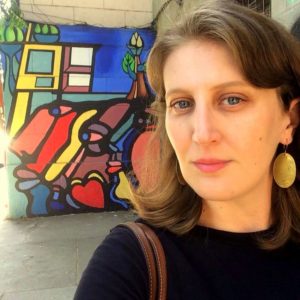
Caterina Preda, PhD, Habil. is Associate Professor at the Department of Political Science, University of Bucharest where she teaches undergraduate courses on Latin American politics, Art and politics, and a graduate course on Cultural memory in South America and Eastern Europe. Her research is interdisciplinary and deals with art in dictatorships, artistic memory in post-dictatorships in South America and Eastern Europe (Chile and Romania), cultural memory, post-communism, Latin American studies, and the visual representation of the Roma. She is the author of Art and Politics under Modern Dictatorships (Palgrave, 2017). Her most recent research projects dealt with the case of the Romanian Artists Union (UAP), and the art and politics of memory of the dictatorship in South America and Eastern Europe” (2018-2020), www.caterinapreda.ro, caterina.preda@unibuc.ro (Guest Speaker)
RADOMSKA MAGDALENA

Magdalena Radomska is Post-Marxist art historian and historian of philosophy, Assistant Professor at Adam Mickiewicz University in Poznan, Poland. She holds a PhD in art history, and has received scholarships at the Courtauld Institute of Art in London, the Hungarian Academy of Sciences in Budapest and at the Eötvös Loránd University in Budapest. She was a director and lecturer of the course Writing Humanities after the Fall of Communism in 2009 at Central European University in Budapest. In 2013 her book The Politics of Movements of Hungarian Neoavantgarde (1966-80) was published. Radomska received Getty Foundation Grant (Connecting Art Histories ) for the project ‘1989 as War and Revolution’ (2022), she has been Polish director of Visegrad Grant – ‘Resonances: Regional and Transregional Cultural Transfer in the Art of the 1970’, Museum of Fine Arts, Budapest (from 2020), has been partner of Visegrad Grant on ‘Contemporary art in Middle Europe’. She received research grant at MSU in Zagreb. She was also Polish director of Visegrad Grant ‘Long Sixties’, Ludwig Muzeum, Budapest (2013). Recently Radomska has co-editedbook ‚Horizontal Art History and Beyond Revising Peripheral Critical Practices’, Jakubowska Agata, Radomska Magdalena (ed.), Routledge 2022. She is also editor of book ‚After Piotr Piotrowski : Art, Democracy and Friendship’, Jakubowska Agata, Radomska Magdalena (ed.), Poznań 2020, and WORK FOR SMALL CHANGE FRANCISZEK ORŁOWSKI PRACA ZA/ NA DROBNE / Radomska Magdalena (ed.), Warsaw 2018. Her recent publications include: ‚What Isn’t Orthodox Horizontal Art History’, in:Umeni 2/2021; Working in the Twice-mined Semantic Minefield: The Politics of Hungarian Neo-avant-garde Movements, in: Art in Hungary 1956-1980 Doublespeak and Beyond / Turai Hedvig, Sasvari Edit, Sandor Hornyik (red.), 2018, Thames&Hudson; Drawn from Communism: Anti-Capitalist Drawing from Central-Eastern Europe, in: A Companion to Contemporary Drawing / Chorpening Kelly , Fortnum Rebecca, Arnold Dana (ed.), Wiley-Blackwell Companions to Art History, 2020. Currently Radomska is engaged in a research on the Post-Communist art in Post-Communist Europe (grant received from the National Science Center) and criticism of capitalism in art (book: he Plural Subject: Art and Crisis after 2008) and – as her second PhD – she is writing a monograph on Post-Marxism. She is a member of both Polish and Hungarian AICA and editor of magazine Czas Kultury. She is board member of magazine Sztuka I Dokumentacja. Radomska is a founder and a head of Piotr Piotrowski Center for Research On East-Central European Art. http://piotrpiotrowskicenter.amu.edu.pl
ROMANKIV MARTA

Marta Romankiv born in Lviv, Ukraine. She is an interdisciplinary artist, creator of installations, video works, and social situations, as well as a curator. She graduated in artistic ceramics from the Lviv State Institute of Decorative and Applied Arts. She continued her studies in Poland – at the Faculty of Art of the Pedagogical University in Krakow, and obtained her Master’s degree from the Academy of Art in Szczecin. She is the winner of the international Allegro Prize (2020); a scholarship holder of the Gaude Polonia residency program by the Polish Minister of Culture and National Heritage (2021), and a scholarship program in Krakow (2022). She has presented her works at exhibitions and scientific conferences in Poland, Portugal, Kosovo, Hungary, Japan, Germany, Italy, and the USA. She is a PhD student at the Academy of Fine Arts in Gdańsk. Her activities mainly focus on the issues of civil and labor rights, social exclusion in the context of migration, and related identity problems. Her projects are often participatory in nature and are at the intersection of activism, social sciences, and art. The artist lives and works in Poland. fot. Mateusz Lipiński. (Guest Speaker)
SEKELJ SANJA

Sanja Sekelj is a Postdoctoral Researcher at the Institute of Art History (IPU) in Zagreb. She has a Master’s Degree in Art History and French Language and Literature from the Faculty of Humanities and Social Sciences, University of Zagreb (2014). In 2021, she defended her PhD thesis “Digital Art History and Artists’ Networks in Croatia in the 1990s and 2000s” at the University of Zadar. Her research has been largely concerned with interpreting the cultural dynamics and networking practices of the visual arts’ scene actors in Croatia at the turn of the millennium (1991–2006), with the emphasis on different and often competing social circles whose interrelationship defines the scene’s network and cultural structures. Recently, she is also focused on mechanisms of international cultural exchange in Croatia and Yugoslavia in the 1980s. She was a member of the scientific research project ARTNET (IPU, 2014–2018), a member of the curatorial team of the Miroslav Kraljević Gallery in Zagreb (until 2016) and executive editor of the scientific journal Život umjetnosti (2018–2021). She is currently a team member of the research projects “Models and Practices of Global Cultural Exchange and the Non-Aligned Movement: Research on Spatio-Temporal Cultural Dynamics” (IPU, 2020–2023) and “New public culture and spaces of sociability” (Clubture, 2021–2022). (Getty Seminar Participant)
SHOSTAK JANA

dr Jana Shostak conceptual artist, since 2020 cofounder of help activist movement „Partyzanka” which is considered as extremist in regime Belarus. A realist who demands the impossible. In 2023 she ran for the Polish parliament. Since 2016, she has been consciously using mass media as a tool to speak about art/activism. For combining art and activism, she received the Paszporty Polityki award and nomination for the „Spojrzenia”. In May 2021, she created a protest-monument against the regime’s policy “a minute of scream for Belarus” which appears in more than 120 articles all over the world. (Guest Speaker)
SOWA JAN

Jan Sowa is a materialist dialectical social theorist and researcher. He studied at the Jagiellonian University in Kraków, Poland and University Paris VIII in Saint-Denis, France. He holds a PhD in sociology and a habilitation in cultural studies. He is recognized primarily for his work on modernity and modernization in (semi)peripheral zones of the capitalist world-system. His research and teaching assignments took him to several academic and non-academic institutions in Poland and abroad including University of São Paulo, Akademie der Künste der Welt in Cologne and Institute for Human Sciences in Vienna. Between 2016 and 2019 he was a member of the Committee on Cultural Studies of the Polish Academy of Sciences. He has also been active outside of the academic field in media and art, recently working as the Curator of Discursive Programs and Research of Biennale Warszawa (2018-2019). Jan Sowa edited and authored several books and published numerous articles in Poland and abroad (in France, United States, Mexico, Czech Republic, Canada and others). A collection of essays “A Joy Forever: Political Economy of Social Creativity”, that he co-edited, including articles by Luc Boltanski, Massimiliano Tomba, Isabelle Graw and Gigi Roggero appeared with MayFly Books (London) in 2015. He recently edited a volume of interviews with activists and scholars dealing with self-organization and self-rule (“Solidarity 2.0 or Democracy as a Form of Life”, 2019). Jan Sowa is currently employed as Associate Professor at the Academy of Fine Arts in Warsaw. (Guest Speaker)
STECKO LIZAVETA (KALEKTAR)

Author, curator, artist, activist. Interested in highly social themes, art related to activism, post-humanism, art migrant studies. Co-founder of the charitable collective STUS (from 2022 foundation) – a grassroots initiative engaged in the integration of the local community and people with migrant experience in Poland. The STUS Foundation provides assistance by organizing cultural events and social art projects. She is interested in self-publishing and creates artistic zines. She is engaged in the creation of vytinankas as a continuation of Belarusian folk art. She also creates stage design and decorations for creative events, as well as costumes. Lives and works in Poznań. (Guest Speaker)
STOENESCU CRISTINA
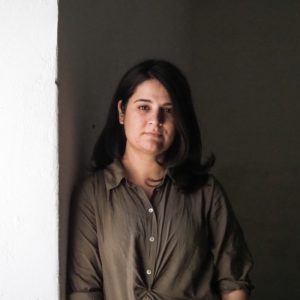
Cristina Stoenescu is a researcher, independent art writer and curator based in Bucharest, Romania. She is currently undergoing her PhD studies at the Faculty of Political Sciences at the University of Bucharest under the supervision of Dr. Caterina Preda. Her previous studies include an MA in art theory from the Centre for Excellency in Image Studies in Bucharest, and a second MA in arts and heritage at the University of Maastricht. Her research focus on the recent history of art and politics in Romania leads to her approaching topics related to memory studies and contemporary art within the region. (Getty Seminar Participant)
TEPEŽ KARLA

Karla Tepež is a doctoral student of Political Science at the Faculty of Social Sciences, University of Ljubljana. Her research interests lie in the intersection of art and politics, with a focus on protest art as a specific political practice and its potential for thinking alternative futures. She is currently preparing her dissertation Protest art, democracy and community practices in the (Post-)Yugoslav context, where she explores the political potential of community practices and their contribution to the new ways of working, (self-)organising, and being together otherwise in the (post-)Yugoslav context. Her PhD research is funded by the University Foundation of ing. Milan Lenarčič. She also works on different research projects at the Faculty of Arts, the Faculty of Social Sciences and the Institute for Ecology. (Getty Seminar Participant)
